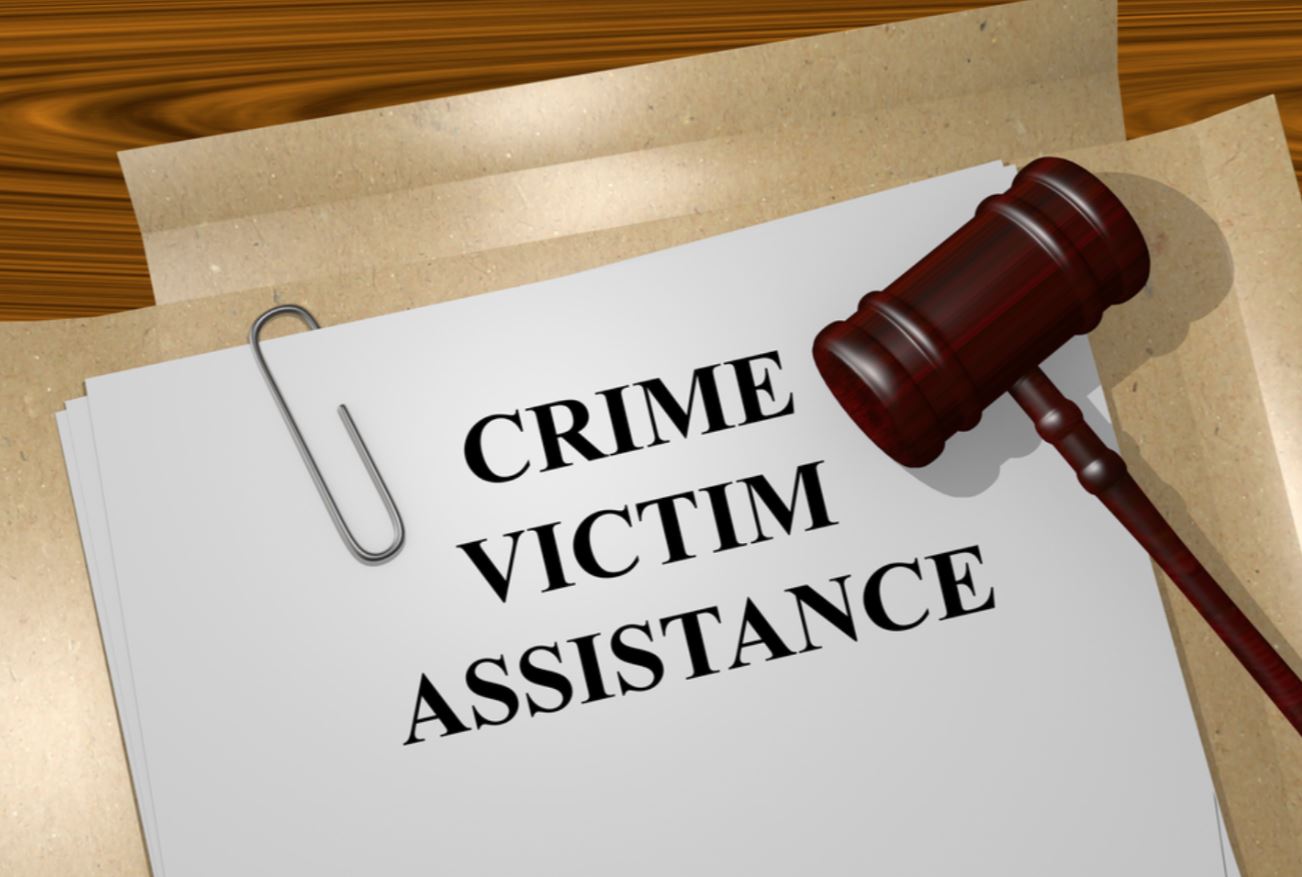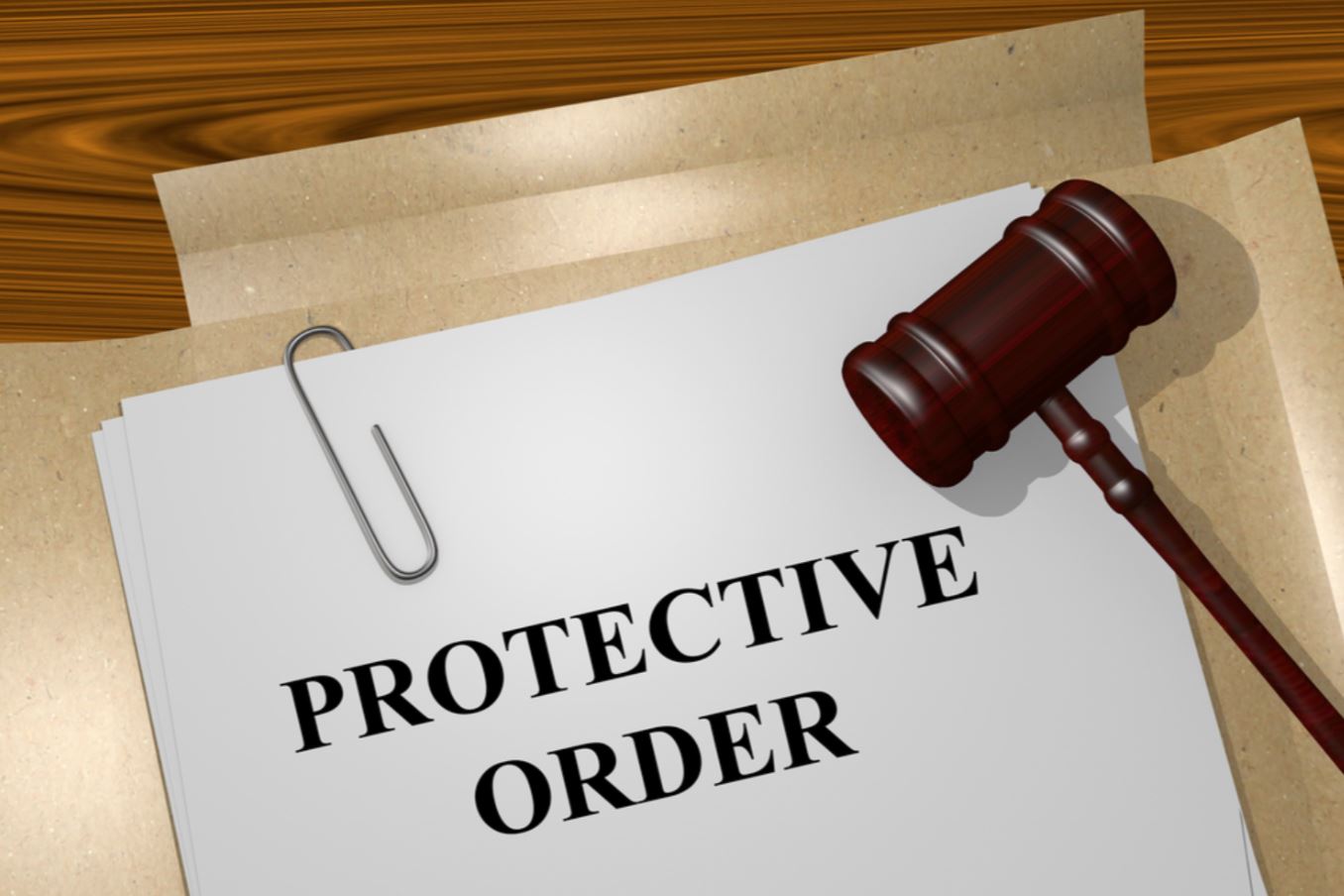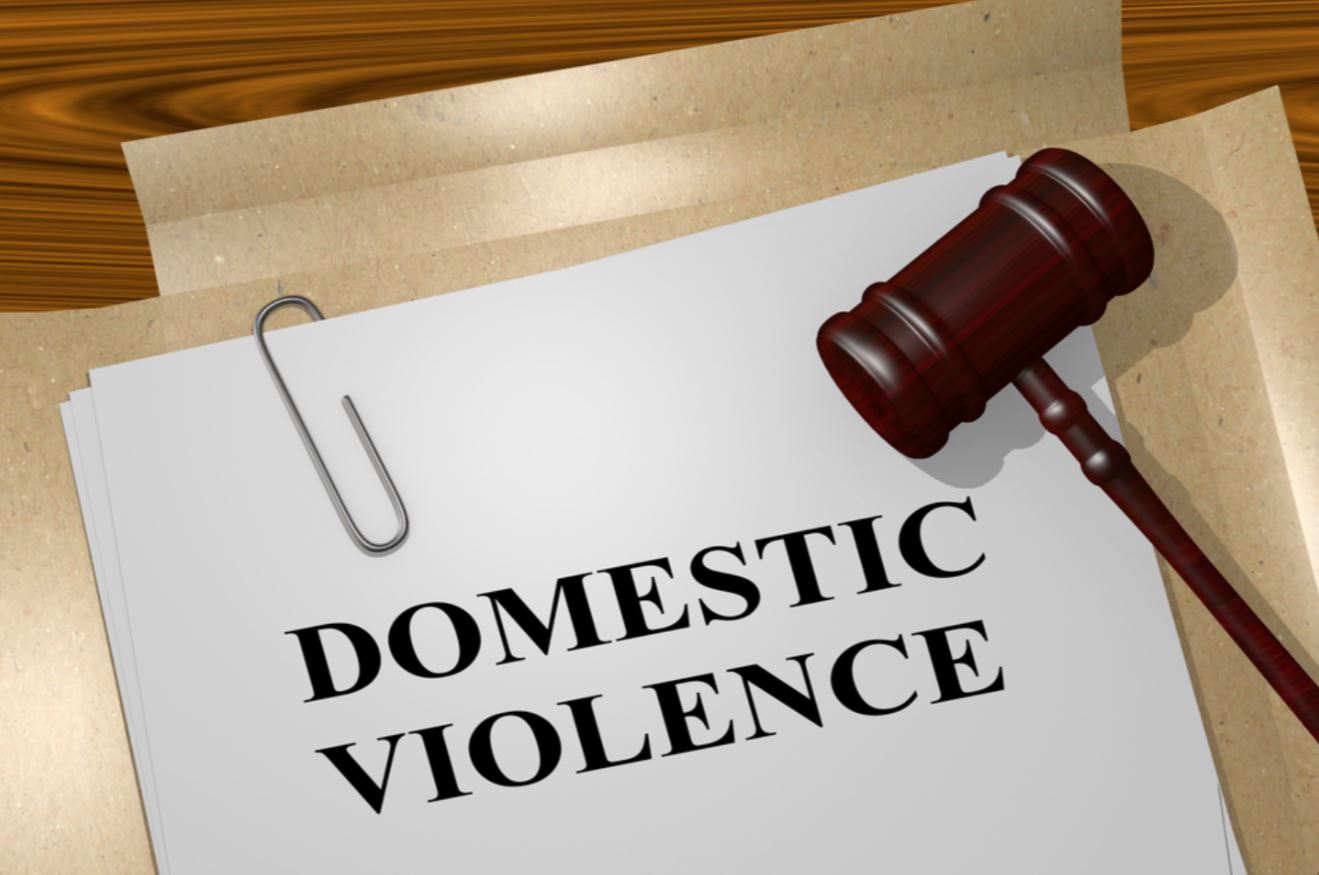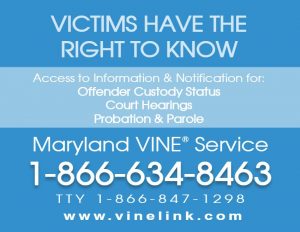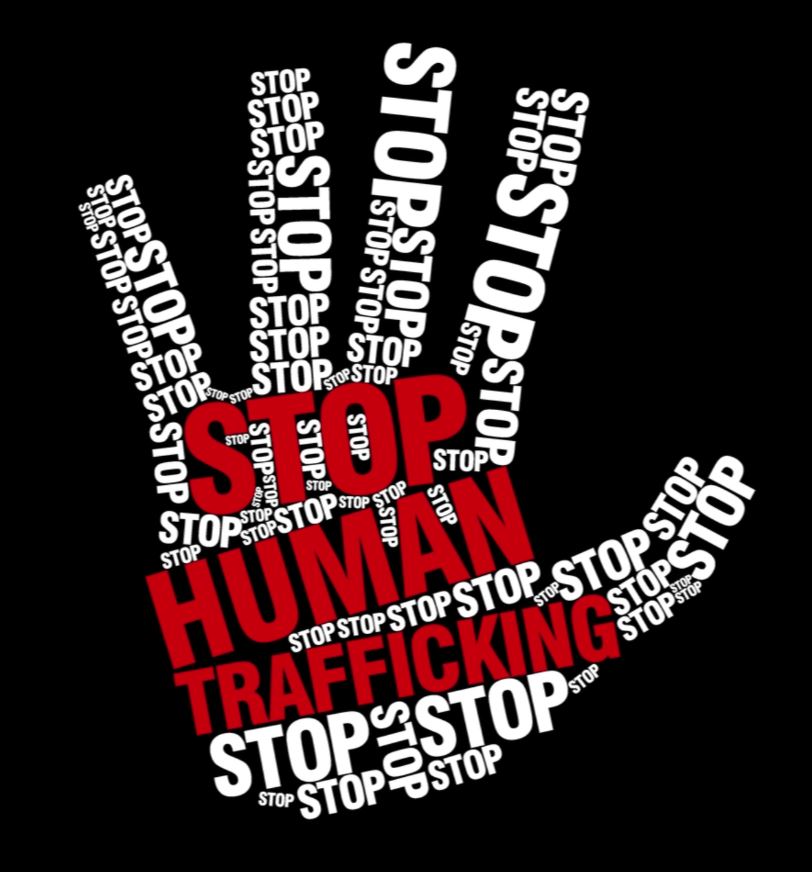Victim/Witness Assistance
The needs of victims within the service area of the City of Takoma Park can vary. Variables may include the type and extent of each individual crime, the existing support already in place for each victim, the age of the victim or the victim’s financial needs. Some victims may require as little as basic information given by a police officer in the form of a pamphlet provided by the State, “Crime Victims and Witnesses: Your Rights and Services.” Other victims may need many hours of support and assistance provided by police officers, the Takoma Park Police Department Victim Witness Assistant and other related service providers.
The Victim Assistant, a civilian police employee, may initially come in contact with a victim at a crime scene if called in by an officer or detective, especially if the victim has need of emergency services such as safety planning, protective orders, emergency shelter, or crisis counseling. Most victims are contacted by the Victim Assistant to offer support, information, accompaniment to court or to offices of other agencies for services. A victim’s needs are assessed at that time and referrals for additional services such as counseling, medical care, support groups and compensation are given to victims after an incident.
The Victim Assistant can also act as a liaison between the victim and detectives investigating a case. The Victim Assistant can schedule interviews and sit with the victim, if asked. The Victim Assistant also passes on important information to victims and witnesses and explains police procedures, the investigative process and the criminal justice system. If requested, the Victim Assistant accompanies victims and witnesses to pre-trial interviews with prosecuting attorneys.
For Takoma Park, contact our communications division at 301-270-1100 for assistance.
Peace and Protective Orders
What are Protective Orders?
Protective orders are civil orders issued by a judge that orders one person to refrain from committing certain acts against others.
Who can file for Protective Orders?
You are eligible for a protective order if you and the alleged abuser:
- Are current or former spouses
- Have lived together in an intimate relationship for at least 90 days during the past year
- Are related by blood, marriage, or adoption
- Are in a parent-child, or stepparent-stepchild relationship and have resided together for at least 90 days during the past year
- Are in a caretaker-vulnerable adult relationship
- Are the parents of a child together
- Have had a sexual relationship within 1 year before the filing of the petition
For more information about Protective Orders and how to file one, visit: Protective Orders
Extreme Risk Protective Orders
Effective October 1, 2018, Maryland has extreme risk protective orders (ERPO), which is a court order that temporarily requires a person to surrender any firearms or ammunition to law enforcement and not purchase or possess firearms or ammunition. Some people refer to this as a “red flag” law. The court may also refer the person for an emergency evaluation.
An ERPO is not the same thing as a protective order or a peace order, and there are limits on what an ERPO can do.
Who can ask the court for an ERPO?
The law is very specific about who can ask the court for an ERPO. The following people can request the court to issue an ERPO.
- Spouse
- Cohabitant
- Relative by blood, marriage, or adoption
- Someone with a child or children in common
- Currently dating or an intimate partner
- Current or former legal guardian
- Law enforcement officer
- Certain medical professionals who have examined the respondent
For more information on ERPO’s, visit: ERPO
Criminal Injuries Compensation Board
The Criminal Injuries Compensation Board (CICB) is a remedial body designed to provide aid and assistance to victims of crime in Maryland. Our statutory authority shall be construed in all circumstances to remedy the harm to the victim and in favor of eligibility for the victim or claimant.
Who may file a claim?
- Person who suffers physical injury as a result of a crime or delinquent act.
- Surviving spouse or child of a homicide victim.
- Person who assumed responsibility for the funeral expenses of a homicide victim.
- Person who was dependent on the homicide victim for principal support.
- A child or spouse of a victim of homicide.
- A parent, child, or spouse of an individual who is incarcerated for abuse as defined in Section 4–501 of the Family Law Article and who, prior to incarceration resided with the parent, child, or spouse; and provided financial support to the parent, child, or spouse.
- Person who suffers from psychological injury as the result of certain offenses.
For more information, or to file a claim, visit: Criminal Injuries Compensation Board
Maryland Crime Victims’ Rights
Under the Maryland Constitution and State laws and guidelines, victims of crime must be:
- Treated with dignity, respect and sensitivity
- Informed of their rights
- Notified of crisis intervention and counseling services
- Notified of domestic violence programs and support groups
- Notified of criminal injuries compensation and other social services available
- Informed on how to apply for services
- Told of protection available to them and how to obtain protection
- Informed by the police or the State’s Attorney of the arrest of a suspect and closing of the case
- Notified of court hearings and offender custody status
- Permitted to be present and heard at criminal justice proceedings
- Permitted to seek restitution from their offender(s)
Victim’s Rights Cards:
If you are a victim of a crime in Maryland, and need more information about your rights, visit: Victim Services
Montgomery County Family Justice Center
The Montgomery County Family Justice Center is a comprehensive one stop center for victims of family violence and their children. The center co-locates multiple agencies to provide coordinated advocacy, law enforcement, civil legal services and social services for wrap-around support for families. Your safety is our first priority. Our goal is to help you in a specially designated facility where you and your children can feel safe and comfortable.
Who is eligible?
Anyone who is experiencing or has experienced domestic violence is eligible to receive services. Children are welcome to use the child friendly environment while the parent is receiving services.
There are NO FEES for services at the Family Justice Center.
For more information, or to download the brochure in English and/or Spanish, visit: Family Justice Center
To access Family Justice Center service information in Spanish, French, Korean and Chinese, please visit: Language Card
VINE: Victim Information & Notification Everyday
What will VINE do for me?
VINE will provide victims of crime and the public with the most vital and recent court hearing dates as well as local jail and state prison status information for an offender currently involved in the criminal justice system in Maryland. VINE also offers automated telephone notification of certain court hearings and changes in local jail or state prison offender status such as release, transfer and escape.
VINE is available in English and Spanish 24 hours a day, seven days a week. (Operators are also available 24 hours a day).
How does VINE work?
A national Call Center located in Louisville, Kentucky constantly monitors offender and court case activity through a connection with the local booking and court case management systems. Updated offender records are automatically sent to the Call Center as often as every 15 minutes.
Callers have two choices, either dial the toll free number 1-866-MD4-VINE (1-800-634-8463) or go to Vine Link to check an upcoming court hearing date or an offender’s jail or prison status. Callers may also choose to register to receive an automated phone notification call prior to a court hearing or upon a change of an offender’s status.
If you choose to be notified, VINE may email you or call you with the notification. Most phone calls will continue for 24 hours with the exception of advanced and non-emergency notifications that will continue for up to two days or until you verify the notification with your Personal Identification Number (PIN).
Sexual Assault Reimbursement Unit
The Sexual Assault Reimbursement Unit was created to provide reimbursement for the physical examination, collection of evidence, and emergency treatment of individuals for injuries resulting from alleged rape, sexual assault, or child sexual abuse. The Sexual Assault Reimbursement Unit aims to prevent individuals and their families from re-victimization by easing the reimbursement process associated with medical-forensic claims processing. The Sexual Assault Reimbursement Unit allows victims and their families to focus on the important task of healing. For more information and frequently asked questions, visit: Sexual Assault Reimbursement Unit
Human Trafficking
Human trafficking is a horrible crime that continues to exist in Maryland and affects all parts of the State. Three major airports, inexpensive bus transportation, train service along the east coast, large sporting events and disposable income makes Maryland an attractive destination for traffickers.
Because of this emerging crime, Governor Hogan prioritized addressing human trafficking in Maryland. The Governor’s Office of Crime Control and Prevention coordinates human trafficking efforts across the State by (1) the coordination of state agency policies and protocols to combat human trafficking, (2) developing and delivering training to state and local law enforcement and government personnel, (3) establishing and implementing data collection to capture the nature and scope of human trafficking in Maryland and (4) coordinating with resources and organizations engaged in these efforts, including the Maryland Human Trafficking Task Force.
For hotlines, websites and resources, visit: Human Trafficking
NATIONAL/STATEWIDE CRIME VICTIM RESOURCES:
GENERAL VICTIM SERVICES/REFERRALS AND NOTIFICATION
Montgomery County 24 hour Crisis Center Line
(240) 777-4000
MD Crime Victims’ Resource Center, Inc.
(301) 952-0063
Toll Free: 1-877-VICTIM1
National Center for Victims of Crime
Helpline: 1-800-FYI-CALL
(410) 323-5800
Toll Free: 1-877-323-5800
First Call for Help or 211 MD
(410) 685-0525
Toll Free: 1-800-492-0618
TTY: (410) 685-2159
Department of Juvenile Services
1-888-639-7499
Office of the Attorney General
(410) 576-6405
MD Department of Human Resources
Toll Free: 1-800-332-6347
MD Community Services Locator (MDCSL)
CHILD ABUSE SERVICES
Toll Free: 1-800-4-A-CHILD
DOMESTIC VIOLENCE SERVICES
National Domestic Violence Hotline
1-800-799-SAFE
TTY: 1-800-787-3224
MD Network Against Domestic Violence
(301) 352-4574
Toll Free: 1-800-MD-HELPS
Abused Persons Program of Montgomery County
(240) 777-1355 (main line)
(240) 777-4673 (24 hours a day)
Maryland Relay 7-1-1
DRUNK DRIVING SERVICES
Mother’s Against Drunk Driving (MADD)
(410) 964-5757
Toll Free: 1-800-446-6233
HOMICIDE SURVIVORS SERVICES & LEGAL ADVOCACY SERVICES
National Organization of Parents of Murdered Children and Other Survivors of Homicide Victims
Toll Free: 1-888-818-POMC
MD Crime Victims’ Resource Center, Inc.
Toll Free: 1-877-VICTIM1
JUVENILE/SCHOOL VIOLENCE RESOURCES
Department of Juvenile Services
Toll Free: 1-888-639-7499
Toll Free: 1-805-373-9977
LEGAL SERVICES
(410) 951-7777
Toll Free: 1-800-999-8904
(410) 547-6537
Toll Free: 1-800-510-0050
MD Crime Victims’ Resource Center, Inc.
Toll Free: 1-877-VICTIM1
SEXUAL ASSAULT SERVICES
MD Coalition Against Sexual Assault
(410) 974-4507
Toll Free: 1-800-983-7273
Sexual Assault Legal Institute (SALI)
(301) 565-2277
Toll Free: 1-877-496-SALI
Rape, Abuse & Incest National Network (RAINN)
Hotline: 1-800-656-HOPE
Victim Assistance and Sexual Assault Program (VASAP)
(240) 777-1355
(240) 777-4357 (24 hour crisis line)
(240) 777-1347 (TTY)
VASAP@montgomerycountymd.gov
STATE CORRECTIONS VICTIM NOTIFICATION
MD Dept. of Public Safety & Correctional Services
Division of Correction
(410) 585-3331
Toll Free: 1-866-606-7789
MD Parole Commission
(410) 585-3213
Toll Free: 1-877-241-5428
